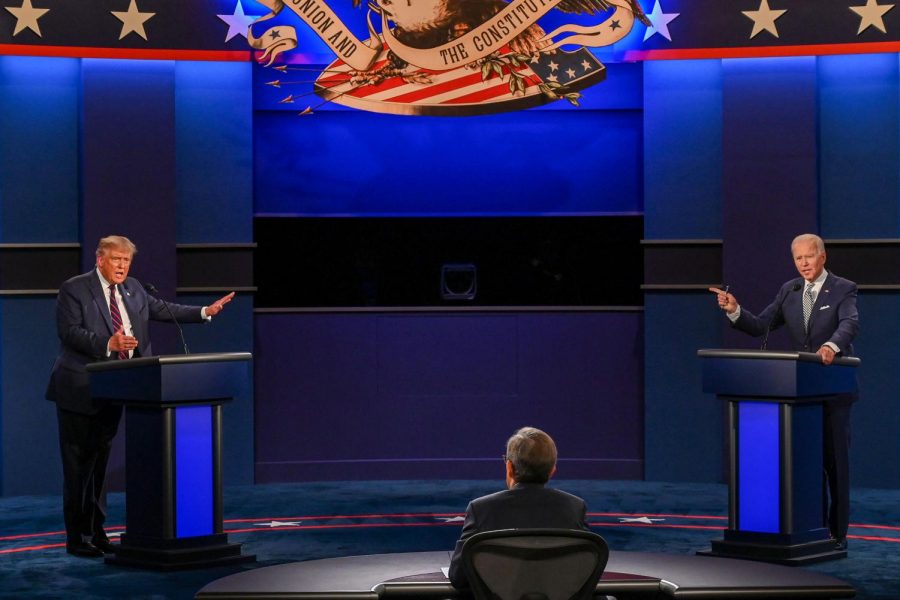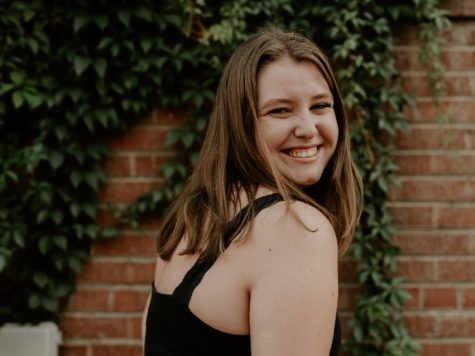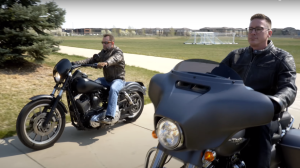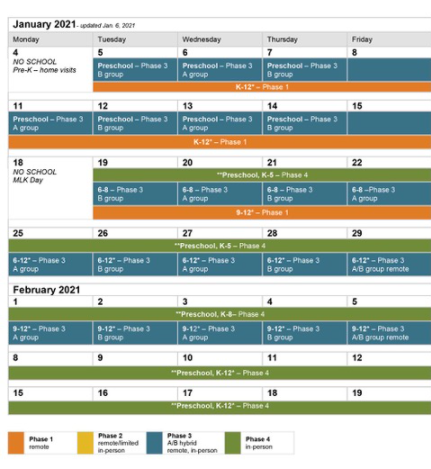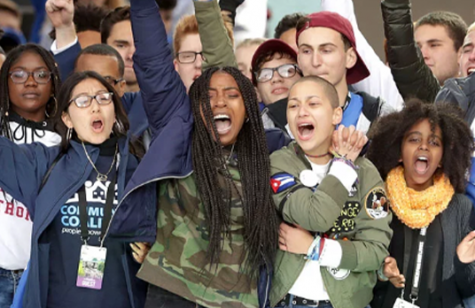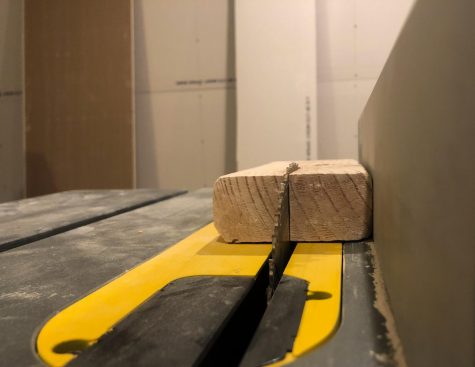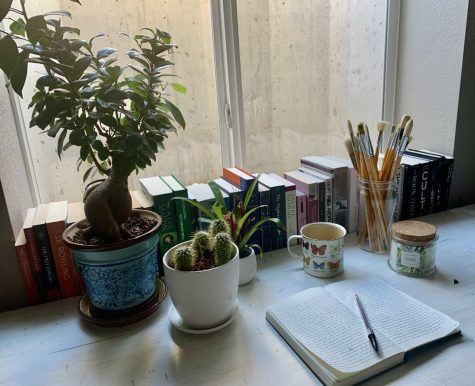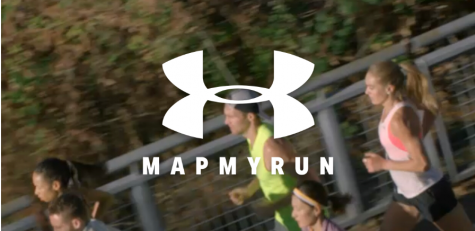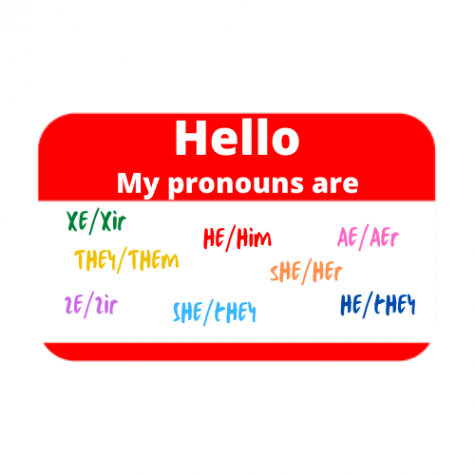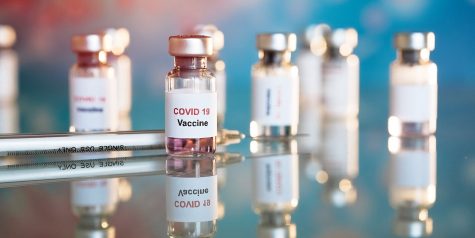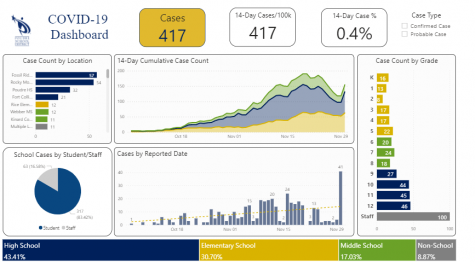First presidential debate sets stage for 2020 election
Presidential candidates Joe Biden and Donald Trump met in Cleveland on September 29 for the first presidential debate of the 2020 election.
September 30, 2020
On Tuesday, September 29, presidential candidates Joe Biden and Donald Trump convened in Cleveland, Ohio at 9:00 p.m. Eastern Standard Time for the first official presidential debate of the 2020 election. This debate was the first of three presidential debates, with two more to follow on October 15 and October 22, and a vice presidential debate on October 7. These debates will set the stage for the election to take place on November 3 by displaying the individual beliefs and thought processes of each candidate.
The first issue to be debated amongst the candidates was how President Trump had nominated Amy Coney Barrett to succeed the late Ruth Bader Ginsburg on the Supreme Court. He argued that, as president, he has the right to choose Ginsburg’s successor, regardless of the timing of this replacement being in the midst of the election. Biden goes on to argue that the American people deserve to have a say in who succeeds Ginsburg, asserting that the new Supreme Court justice should be decided based on who takes office in the coming months. They debated amongst themselves heavily, attempting to present their rebuttals while the other spoke as well.
They organized themselves before moving on to the second topic: Trump wishes to repeal Obamacare in the near future, and the moderator, Chris Wallace, asked him to present his health care plan that will replace it. He explains that he wishes to cut drug prices, like insulin, and that governors will be able to go to other countries to get pharmaceuticals for cheaper prices. Wallace then asks Biden to explain how his public option for health care will influence private forms of insurance. He clarifies that this public health care is only for certain people who cannot afford other insurance, and that the vast majority of citizens will be able to continue with their insurance as it is now.
After another bout of arguing and rebutting one another’s arguments in an attempt to prove their own stance as favorable, they move on to the third issue. This focuses on whether Biden would end the filibuster in the Supreme Court or pack the Supreme Court. Packing the Supreme Court would add more Justices to the Supreme Court, while eliminating the filibuster would end the current standstill within the Senate. At this point, he avoids giving an outright answer, simply facing the camera and telling the public to vote and let their Senators know how they feel about certain issues.
At this point, Wallace ends the opening segment of the debate, moving on to the subject of COVID-19. He asks both candidates why American citizens should trust them over their opponent to deal with the pandemic. Biden first lays out how Trump has failed to protect the American people during the spread of COVID-19, and then explains how he believes masks should be provided and protective measures need to be funded. Trump then defends his actions, explaining how his measures helped to “save thousands of lives.”
Wallace leads into his next question, asking Trump about the development of a vaccine. Trump’s statement that the vaccine is likely to be widely distributed in the next few months contradicted those made by the leaders creating these vaccines. He claims that vaccines can be distributed much sooner than those developers have stated that they will be, and explains that he disagrees with them and their stances on this topic. Biden then agrees with the vaccine creators, explaining how widespread distribution of the vaccine most likely will not occur until sometime in the beginning to middle of 2021. Wallace goes on to ask about their differing views about the reopening of the country. Biden explains that Trump’s lack of plan throughout the pandemic has created a situation in which the country is not completely ready to safely reopen. Trump asserts that more people will be hurt by returning to a state of shutdown around the nation, since it will further hurt the economy.
Keeping with the COVID-19 subject, Wallace questioned the candidates about their stances on masks. Trump explains that he wears masks when necessary, and Biden describes that everyone should wear masks, because over the next four months, up to 100,000 lives could be saved by this cautionary measure.
They then switch topics from COVID-19 response to the American economy’s operations during the pandemic. Wallace asks about their opposing views of the recovering economy after COVID-19 shutdowns. Trump expresses how since everything has been reopening, they have put record numbers of people back into the workforce and the economy has been recovering very well. Biden goes on to illustrate his belief that the pandemic needs to be better handled before the nation can fully open up again, as the economy would continue to suffer as COVID-19 keeps raging.
The next question focuses on the recent report that, in 2016 and 2017, Trump had only paid $750 in federal income tax. He asks if this report is true, and Trump goes on to claim that he paid millions of dollars in taxes one year. Biden is offered a rebuttal, and he describes how Trump paid less in taxes than a school teacher because he takes advantage of tax codes.
They move on to tax proposals, Wallace asking how Biden’s proposed tax plan might impact the economy as it is just coming out of a recession. Biden states his proposals will create more than one trillion dollars in economic growth, and that he will eliminate significant numbers of taxes for the average citizen by taxing large corporations more. After copious amounts of arguing over the economy, recessions, taxes, and more, they move on to their next segment.
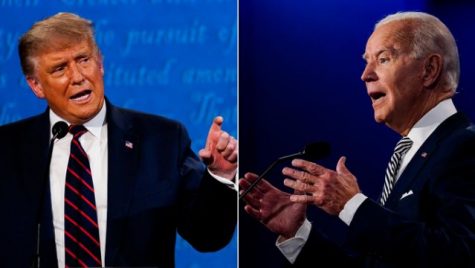
Afterward, the candidates had to explain why American voters should trust them to deal with race issues facing the nation. Biden focuses on how Trump divides the country on racial topics, providing examples like how there were peaceful protesters in front of the White House, and Trump had the military use tear gas on them so he could get by. Trump claims that Biden has treated African Americans very poorly, and that the country demands law and order.
They are then asked about systemic injustices, and if there is a separate yet unequal system of justice for black people in America. Biden says that there are systemic injustices, and that these injustices, specifically those among the police, require transparency and accountability. Following the issue of race, Wallace asked why Trump decided to end racial sensitivity training. He explains that the training was racist and that many people complained about it, so he wished to end this “radical” training.
They move on to the topic of party divides, and if the increase in homicides in America this summer was a party issue. Trump says he believes this is a party issue, and that these cities need more law and order to maintain these rising crime levels. Biden then goes on to explain how he “reimagines policing.” He does not want to defund the police, but describes how community policing needs to be more prevalent and that other roles, like psychologists, should be present with police and help them with certain issues.
Wallace then asks about the protests and violence in cities like Portland. Biden believes that the violence in these cities should be prosecuted, and that instead of going into cities and uniting people, Trump fuels the fire in cities and feeds this violence.
One of the major moments of the debate came when Wallace directly asked Trump to condemn white supremacists. He tells them to “stand back and stand by,” then going on to say the left wing is more problematic, rather than actually condemning white supremacists the way he was asked to.
Nearing the end of the debate, the candidates are asked why they should be elected president over their opponent based on their qualifications. Trump claims there has never been an administration that has done as well as he has. Biden argues that he is a very strong public figure, and that while he was in office, the nation was less divided, and less violent.
They then move on to the topic of climate change, asking about the science of climate change and what they will do to confront this issue. Trump states that the country should do things such as keeping clean air, clean water, and planting trees, and whatever they can. He also explains that, to some extent, humans contribute to global warming, but more importantly, people focus on keeping forests and the environment clean. Wallace asks Biden about his climate change measures and how they would influence the economy. Biden describes that he wants America to move to renewable energy, move to electric vehicles, and that these new measures will lead to the creation of new jobs, along with improving the economy.
Wallace introduces the topic of the upcoming election, asking about mail-in ballots and voter fraud. Biden explains that mail-in ballots are not a source of manipulation and fraud, and that many different sources of voting will be available. He states that the result of the election will simply come down to the citizens and who they vote for, and that, at this time, voter fraud is not a major concern from mail-in ballots. Trump believes that the ballots are a disaster, and that there is a lot of fraud, even as early as throughout the past few weeks.
Finally, Wallace proposes the final question, asking them to confirm that they will urge their supporters to stay calm while votes are being counted, and that they will not declare their victory until all the votes have been counted. Trump states that he would if there is not any voter fraud. If there is voter fraud, he explains that he cannot go along with these terms. Biden states that he and his voters — to the best of his ability — will abide by these terms and remain calm during the waiting period, and will accept whatever the outcome of the election is.
So as the first debate wrapped up, many began to look toward the future of the election and the upcoming debates. Although several topics were not touched on in this debate, people are hoping they might be brought up in future debates. Some wanted to hear the candidates’ opinions on the U.S. Immigration and Customs Enforcement (ICE) and the issues surrounding the organization. Others hoped to hear discussion about each candidate’s beliefs about their own strengths and weaknesses. Additionally, some want to hear more in depth conversations about COVID-19, climate change, and the Black Lives Matter movement.
The initial presidential debate has set the stage for what is to come over the next five weeks leading up to the election, as it will be riddled with more debates and continued policy discussions. As the country gears up for the election on November 3, it is important to look into each candidate’s beliefs and stances on the issues that will go on to impact the nation. Most of all, remember to go out and vote, as each and every vote will help determine the future of the United States.



